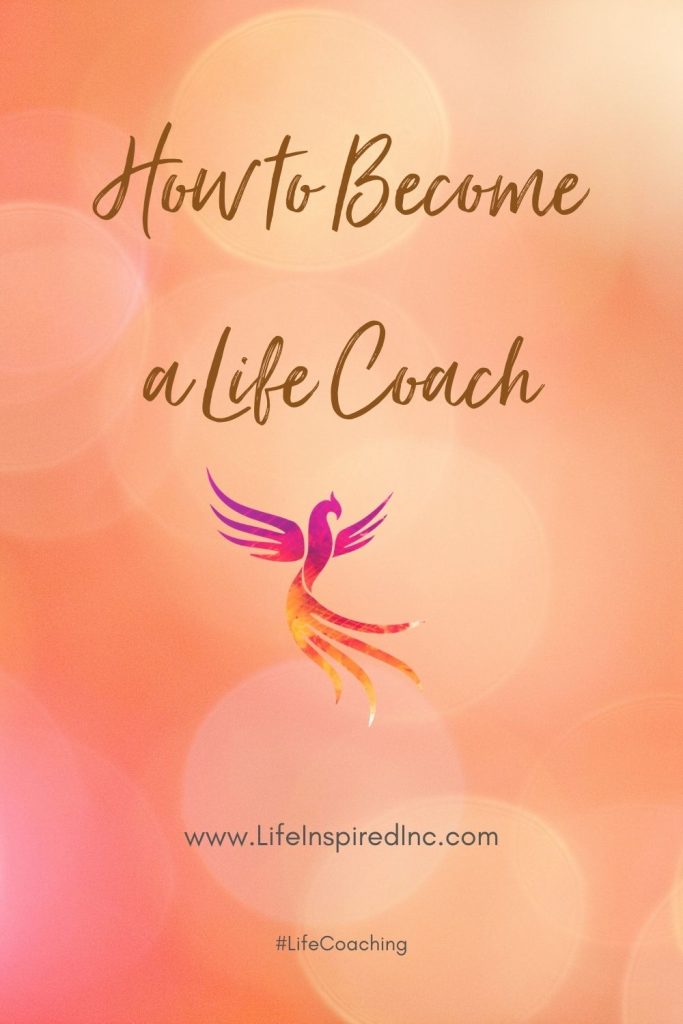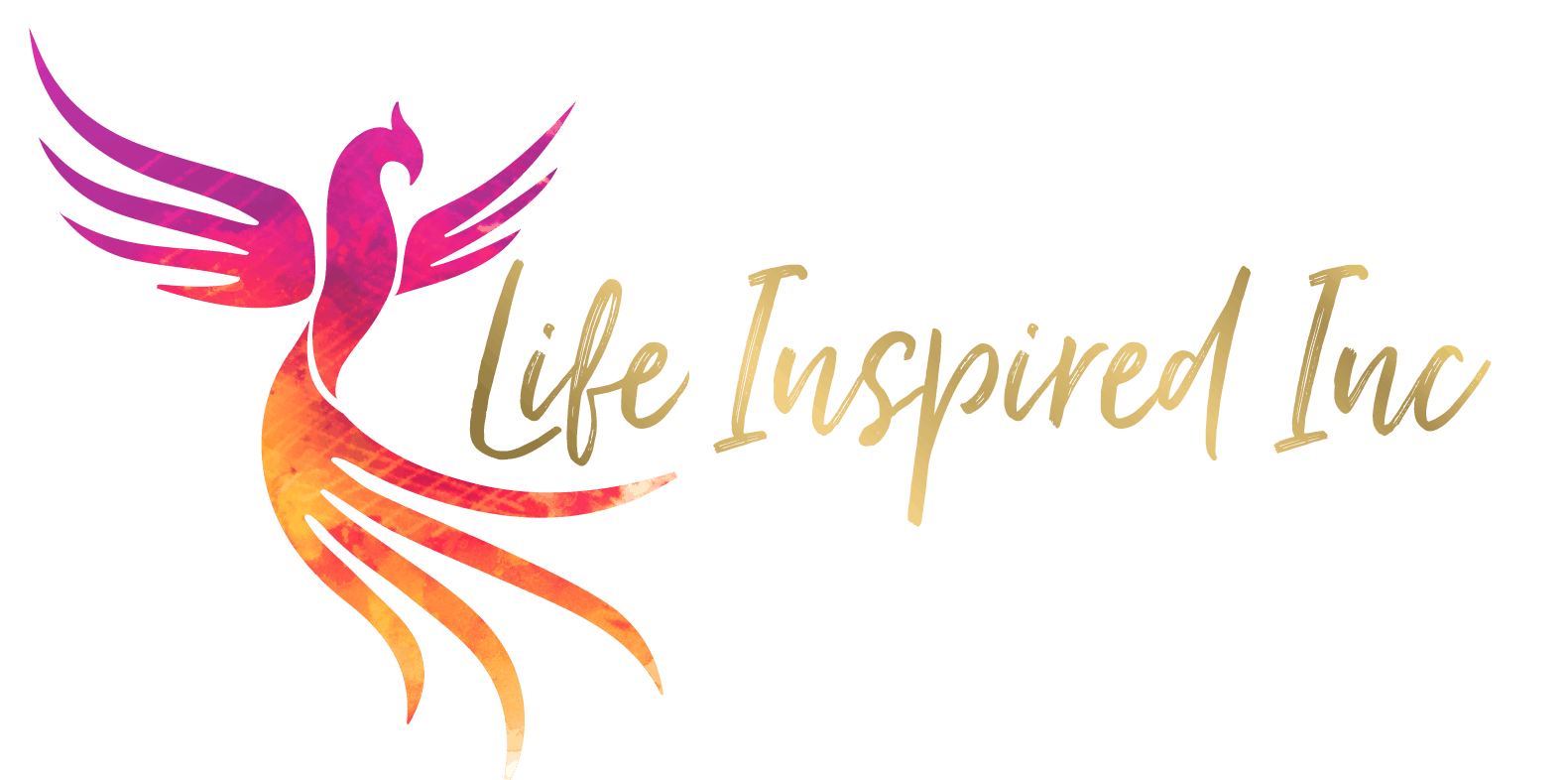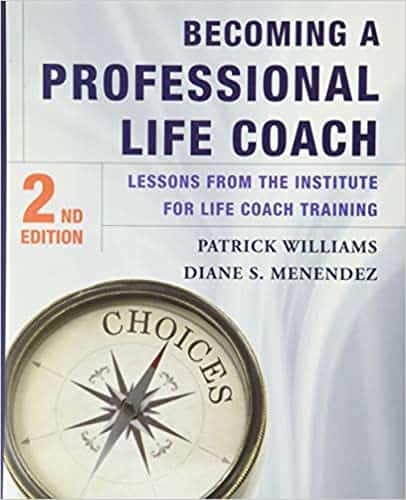Ultimate Guide to Getting Started as a Life Coach
This comprehensive guide to becoming a life coach will help you make intentional choices that will empower you to design a life coaching career to express your authentic life.
Below is the table of contents for a complete step by step guide to discovering and designing your ideal life coaching business. The companion workbook can be found here, or you can get the whole PDF book and workbook sent directly to your email using the form below. The book covers more details than what can fit here and provides room to write your answers to the many thought questions and action steps.
____________________________________________________________________________
_____
Table of Contents

Section 1. Who Can Be a Life Coach, and Is It Worth It?
Let’s get started with the basics.
Who can be a life coach?
You’re probably hoping I’ll say “anyone!”
Can anyone call themselves a coach? Yes
Is there any law saying you have to have certain certifications, degrees or training? No
So in that sense, anyone can be a coach.
Can just anyone be a great coach with a profitable long term business? No.
To be a great coach with a reputation for excellence, empathy, and integrity you have to either have, or be willing to develop the character of a great coach
Can you be a life coach? Absolutely. I can say that for sure because anyone reading a website about how to become a life coach already has the number one quality on that list – the heart to make a difference in the lives of others.
You can’t be just any coach however. Those one-size-fits-all advice columns that tell you it’s as easy as taking a brief class, get certified, and launch a business are for average folks trolling for an easy work from home business. To them it doesn’t matter what the business is.
You won’t thrive in an average, one-size-fits-all life coaching business. The purpose you are meant to bring to the world needs to be a central part of your business model. Your unique purpose needs to be uncovered and allowed to shine. Your business needs to be intentionally designed by you, for you and for the people you want to reach. I’ll show you how to do that in the articles to follow.
Is Becoming a Life Coaching worth it?
You are in the right place at the right time. Life coaching is exploding as a profession because:
1 – There is an increasing and positive impression of the profession
2- Businesses can track a measurable return on investment from using life coaches in the form of increased productivity, greater engagement, and innovative thinking among employees.
3- Coaching is already widely accepted and valued by business, sports and entertainment professionals as key to their career success. Like other trends, those leaders will influence a favorable view of life coaching among the rest of the population. Gradually all niches of coaching will benefit from the rising popularity.
The number 1 reason most people quit life coaching is because they believed the promise that it’s easy. When a life coach training program promises a 6 figure income in the next twelve months and that doesn’t happen, people make the mistake of believing there is a problem with them.
The problem was with the promises.
They lied to you.
Becoming a life coach and starting a new business is hard work. It takes time and dedication. This guide will give you honest, realistic expectations and help you make a plan to tackle the hard stuff. No over-hyped promises here. Just solid facts, actionable steps to take, and inspiration to get started.
Is it worth the effort?
Absolutely. The only way to know for sure it’s worth it for you is to educate yourself on all the facts about what it takes and weigh that against the dream in your heart. Is becoming a life coach really your dream, or it does it just sound like a cool idea?
Go through the rest of these articles.
Fill out the assessment questions in the workbook.
Get as fully prepared as you can be.
In the end, you will either be equipped for success far beyond the average aspiring life coach, or you will know it’s not for you and you will have saved yourself a ton of money paying for training you don’t need.
Questioning whether something is worth it or not is often just a message from a freaked out brain that doesn’t want you to mess with the way things are now. Here are answers to the 3 common fears about becoming a life coach
When is it NOT worth it?
Look out, honesty train ahead. You can either jump on and get honest with yourself or sit on the tracks and wait to see what happens.
For an absolutely fabulous, more in-depth look at the realities of life as a life coach, check out this article from my friend Sai Blackbyrn about a life coaching career
Getting into life coaching is not worth it when:
- You are not emotionally and mentally stable yourself
- You get started out of desperation because you need a quick way to make money from home
- You believe you are a “light worker” sent to heal the wounds of the world (Coaches don’t heal or fix people, counselors do. Clients come to coaching to move forward in life, not to heal from the past.)
You’ve got the heart to be a coach

You know it’s right for you
You’re not in danger of doing it for the wrong reasons.
But you don’t really believe you have anything to offer.
Wanna bet? The next section will help you get very clear about what you do have to offer and the purpose your life is meant to fulfill.

Section 2. What Do I Have to Offer My Clients?
Your strengths and your potential
Most people come into this section thinking “I don’t really have any unique strengths, there isn’t anything special about me that I can offer to a client” Before we are done, you will know a whole lot more about exactly what you do have to offer and why it’s important .
We’re going to go through an exercise designed to help you identify your unique strengths. It will reveal some things you likely never thought of as strengths.
Take a moment and write down (or download this free worksheet) everything you can think of which you can do. No filtering or judging here. Just brain dump all that you’ve learned. What comes easily to you? What do other people ask you to do for them? What do others say you are good at? What were you good at as a child? The possibilities go far beyond just being athletic, academically gifted or attractive. Were you everyone’s friend? Did empathizing with others come naturally? Were you good at studying, or keeping your locker organized? Maybe you aced history class because keeping all those dates and details straight in your head comes easily to you.
What are you doing when you lose all track of time?
What do you do that is insanely productive and feels easy?
This strengths exercise goes far beyond the typical idea of finding your “passion.” Too often someone’s idea of what their passion is in life is nothing more than a vague notion about some pursuit or role they are not currently involved in but seems like it might be a good idea.
If you need help jogging some thoughts – here are a few of the less obvious areas where you might have strengths:
| sharing and giving | communicating | planning |
| seeing the big picture | caring for animals | respecting others |
| hands-on craftsmanship | creating unique projects | good listener |
| exploring new interests | noticing details | making things fun |
| sensitive to surroundings | big thinker full of ideas | perseverance |
| critical thinking | making people laugh | hand/eye coordination |
Those are just a few of the out-of-the box areas where people are gifted and don’t realize it is something not everyone can do.
Other ideas can come from thinking about what you love to do in your free time. What do you do that brings you joy?
Now, let’s narrow it down to your inborn talents, not things you’ve learned to do, or do well only because you have to, but don’t enjoy it.
Cross out anything that is a learned skill.
Cross out anything you do because you have to but don’t really love it.
What’s left?
Which are your top 3 to 5 strengths that come easily, feel natural, bring joy, or are just a pleasure to do?
Write those down on your Roadmap in the My Strengths Section

Section 3. Life Coaching Lifestyle
The biggest mistake people make when thinking about a new career is not considering the lifestyle that comes with it. We get wrapped up in planning what job we would be doing, and often neglect to think about the day to day reality of doing it.
My friend Carolyn originally wanted to be a corporate leadership coach. She has a lot of international business experience and years of working in the banking industry. Building on the relationships and connection she made in those years to build her Life Coaching business made sense. Once she started developing her practice, she realized she was spending a lot of time going to corporate headquarters to lead leadership development workshops.
She was wrapped up in the excitement of life coach training and starting a business and didn’t think about the day to day realities. Carolyn wanted a business of her own so she can change the lack of life balance and self-care she experienced when she worked for a bank. What she found was the demands of being a leadership coach at the corporate level left her in the same stressed out, frazzled and super busy life she thought she had left behind.
If you don’t think about the lifestyle you want before you get started, you could end up with a life coaching business model that doesn’t align with how you want to live.
We start designing a lifestyle by assessing what values are important to us, and identify what we want to experience in our daily lives. Then we find a coaching business model that aligns with who we want to be and how we want to live.
Assess your values and desired lifestyle.
This just one place where this guide goes far beyond the typical” how to get started as a life coach” resource. This is the same structure I use when helping my clients make an important transition. Knowing your values and the lifestyle you want to live, gives a framework around your decision making process. If you don’t know HOW you want to live, it’s almost impossible to figure out WHAT to do to make that living.
Why Values?
We all live our lives and make decisions based on what we value. Some values are fairly common within our social group; things like justice, unity, and respect. Others are found in our inborn personality: serving others, leading, hospitality, precision, living joyfully, pursuit of accomplishment.
What you value is revealed in what motivates your behaviors and responses to the world. Discovering your values and intentionally living by them even when the world is trying to push you in another direction gives us confidence and a sense of self worth.
Values inform how we do those activities that flow from our strengths. Personally, I value and need solitude. While I have a natural strengths around understanding how people think and change, sharing that in a group coaching program would drain me. If I do a group workshop, I need to allow at least a day or two afterwards of down time with very little productivity.
I would soon grow to hate the work if all I did was group coaching and workshops. Being HSP (highly sensitive person) means I sense all of the emotional energy around me. It’s connected to a gift of mercy and compassion, but it comes with a price, like all gifts. Too much “peopling” takes a major toll on my energy.
Values in a Coaching Practice
Maybe you value family time. A coaching business that requires 8 or more hours a day of back to back clients, plus administrative time, doing the billing, keeping up on marketing, and all the other aspects of running your own business, means your family time will suffer.
Knowing your values and committing to living by them leads to that ever-illusive life balance we all want and makes us a better example for our clients. Knowing what you value means you can design a life and a business in harmony with your values.
Conflicting Values
What if you have a client who wants coaching around starting a new life that leaves her children behind with her spouse? If you know you have a deeply held value around the importance of family, this could be a difficult client for you. Perhaps you feel very confident in your ability to put your personal feelings aside. However, knowing where your values conflict with those of a client will help you avoid any unconscious temptation to asking leading or judgmental questions.
One of the primary characteristics of a great coach is self-awareness! Great coaches know where their emotional triggers are and acknowledge their influence rather than trying to brush them off.
Another characteristic of a great coach is synergy with your clients. While we respect the dignity of every human and have a desire to help everyone, sometimes it is in the client’s best interest to refer them to a coach whose personal beliefs are more in line with the clients. Great coaches do what is best for the client and I know you are here because you want to be more than just an average coach.
A coaching business that is the right fit for you allows you to live out your values.
Turn to section 3 in the Roadmap for a worksheet to help identify your top 5 values.
Now that you’ve identified the values to live by, how do you want to live? This is the fun part.
Finding your destiny as a life coach
Travel?
Own a home?
Free time for a hobby or volunteer work?
High income?
What life do you want to design? You may already be subconsciously imagining your ideal coaching business without being fully aware of the assumptions you’ve made about what it will be like. You might imagine:

Curled up on the couch by a roaring fire in a mountain cabin, studying up on how to help your next client

Driving your red BMW 1 Series sedan to a corporate office and spending the day leading workshops for the top performers in the company
Sitting face to face with someone who is rebuilding their life after addiction


Holding group parenting workshops for young families and facilitating family field trips.
Whatever it is, let’s capture it fully. It won’t just happen because you take a coaching program. We need to bring it fully into the light in great detail and make a plan to bring it to life. Write it down. Create a college or vision board if that inspires you.
Use that vision to guide you in all of your business decisions including what type of coaching school to join, what courses to take and what kind of certification, if any, you need.
If you don’t capture that vision it is easy to get sidetracked once you get into the nitty gritty of training, coaching, marketing, branding and all the other aspects of running a business. Just like it did with Carolyn, life will set out to distract you!

My vision board includes more than just coaching. It includes prioritizing making time to hang out with the grand baby, raising service dogs, remodeling my house and indulging my curiosity. When building a vision for your future, include all areas of your life!
A Word of Warning
Once you make your dream to be a coach known, and start working toward it, everyone from teachers, other students, clients, friends and even ads on social media will try to influence your direction. Creating a vision board, or putting your vision in writing will help keep your eyes on what you want. You’ll be less likely to be drawn off track by the influence of other people.
Quick note about social media: As you start on your coaching journey, you’ll find yourself exposed to a lot of “life coach experts” advertising on social media who know the exact psychology to use to influence your choices. They want you to buy their courses and “be a 7 figure success” or “Be the next Tony Robbins” or “Create the Ultimate Mastermind Group and never work again” They are appealing, and most of all distracting. Those ads are written by expert copywriters who get paid tens of thousands of dollars to write ads that influence behavior. If you are not clear about what you want and where you are going, you will be tempted to wander off onto the pretty shiny rabbit trails offered by those ads. If you are clear and confident about the life that is right for you it’s like having a superpower to ignore distractions!
Once you’ve put some thought into clarifying your ideal lifestyle, write down your ideas in the Roadmap at the end of section 3.
Now you know how you want to live, let’s look at what you want to do
Coaching models – wait! You mean I have to understand psychology and figure out my own process to help clients reach their goals? Nope, relax. A coaching model is not the process you use to walk clients through a session, it’s more of a life coaching business model.
Not all coaches sit on the beach with their laptop and cell phone talking to individual clients throughout the day (although that has a lot of appeal!) Here’s just a short list of possibilities.
- One on one clients
- Group coaching
- In-house coach for a corporation
- In-house coach for a community resource center
- Coaching / consulting (yup, it’s okay to combine them. You’re allowed. Although coaching is a separate skill set and focus than consulting or counseling, (and you should most definitely NOT veer into counseling a client if you aren’t a licensed therapist,) you can combine coaching and consulting. It’s your business. I do it)
- Motivational speaker (don’t believe me? Tony Robbins, Marianne Williamson, Martha Beck, Brian Tracey, Brene Brown… they are all fundamentally coaches)
- Speaker/author
- Workshop leader
- Create and sell a self-help product
We want to discover what business model of coaching is ideal for how you want to live. Coaching is incredibly flexible compared to most businesses and can look like almost whatever you want. I know one retired nurse in her 70’s in Minnesota who coaches a small handful of health care professionals over the phone while sitting in her favorite recliner with her cat!
My friend Carolyn realized she needed a new business. When she went deeper into an exploration of her values and her ideal lifestyle she realized two things:
She deeply values her faith and wants to work with women of similar spiritual values and
She doesn’t want to be in what she called a “concrete box full of stressed out ladder climbers” She wants a life of less stress and more time for family.
When she added those revelations into her plan along with her purpose and strengths she came up with the idea of coaching women online through her self-care workbooks and small classes.
Personally I do a mixture of several models. I have private clients. I’ve done corporate workshops. I lead webinars, do local speaking, I’ve written books, and I have three different websites. This very guide you are working through now will soon be a product other people will have to pay for. I’m either a diversified, Renaissance woman or have ADHD.
Remember strengths, lifestyle and values? Now you have almost all the pieces you need to start designing your ideal Life Coaching Business.
Go ahead and pull out your roadmap again. The last bit of section 3 has thought questions to help you clarify what kind of life you want plus room to write a more in-depth description if you want. Remember, these are just ideas. They are possibilities to explore. No commitment or pressure here!
It’s like working with modeling clay. You start with a formless blob. You have an idea, but the first few steps look more like just another blob. Gradually you press and shape and refine the clay. You step back, see how things are going, make some adjustments and continue to improve. You don’t go from formless blob to finished product all at once.
At this point we’re still pretty blob-ish. Refinements are coming!
We’ve got lots more to cover. The best way to view this whole guide, plus get a written copy of the Roadmap is to download the full PDF and print it out. Then you can work through the material at your convenience without losing your place.
Celebrate Your Progress and Take a Breather!
Let’s take a quick break to acknowledge how much progress you’ve made! You are way ahead of the curve, but there’s a deep valley ahead. If you know it’s coming and why it’s a good thing, you’ll make it through the valley and we can continue up the mountain on the other side to your new life.
You’ve already started to lay a foundation for success which 90% of aspiring coaches never do. Very few people get into coaching with as clear a vision for their business and their future as you have right now. It might feel completely overwhelming and un- attainable, but guess what? If you are feeling that way, you are actually exactly on track toward change and growth!
Growth is hard, it is unfamiliar. Growth goes against our comfort zone and the brain does not like it. You are sitting at a decision place right now. Do I push against this feeling and move into the future I have already imagined for myself, or do I settle back onto the comfy couch of same-old-same-old life?
There are 5 normal stages of emotion we all go through when we decide to change. It’s so common and predictable there are whole research studies and books written about it. In brief, it looks like this:
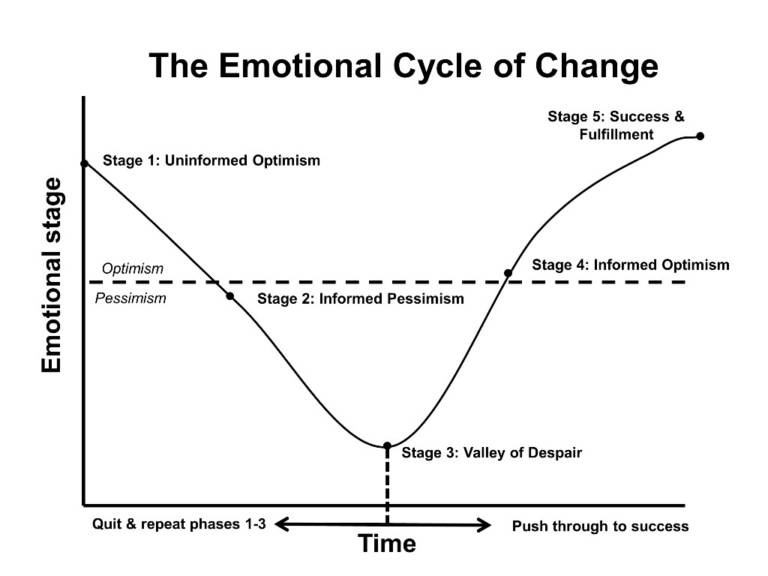
At stage 1, before you really understood the depth and breadth of what a coaching lifestyle might look like and what it will require from you, you were uninformed and optimistic. You started looking into this new possibility with hope and enthusiasm.
Now you are likely at stage 2 and headed for stage 3. The big picture we are building for your future seems far too distant and fairly impossible. Congratulations! You have moved out of your comfort zone and started the journey to your future. That feeling of “informed pessimism” leading to the Valley of Despair is a sign your brain is having a little bit of a freak out.
You are considering doing something you’ve never done before and because of the work you’ve done here you have a sense of what it’s going to take. You are operating with your eyes open (which is the only way to see the path to get where you want to go!)
If you look at the chart, you can see there is nowhere to go from here but up, provided you keep moving. If that doesn’t excite you, I don’t know what will. Even if your vision doesn’t come to pass the way you see it right now, you will be climbing toward a better future.
Remember, each step you take helps you grow stronger mentally, grow in confidence and stand higher up the mountain to see farther. But you can’t grow if you don’t take the steps first. Waiting until you feel “ready” means your mental muscles and your confidence will start to atrophy while you’re sitting around. Doubts and fears will grow instead. Take the next small step, work through the final sections of this series, then see how you feel about the next step. But don’t make any decisions about giving up! You don’t have enough information to make a good decision just yet.
We are about to start moving up that chart to Informed Optimism.
In the next sections you’re going to
- Make some choices about who you want to coach
- Understand the basics of building a brand
- Identify the costs and find the education that fits your specific needs
- Confront and plan a way around obstacles,
- set up a concrete timeline for getting your business off and running
and before we’re done you will have a custom designed, step by step roadmap in hand to guide you on your way to the top of the emotional change chart and your new life coaching business

Section 4 Life Coaching Niches
Now that you’ve looked deeply at your strengths, your skills, your values and your desired lifestyle, let’s build your brand.
There are two parts to your brand
- The niche of people you serve
- How you serve them.
You’ll do this much more in-depth when you actually start building your business. This is just a rough draft, more of that modeling clay to be used as a starting material for building the best coaching business for you.
Just getting some initial ideas out will put you miles ahead of people who wait until after they get certified to start thinking about starting a business.
A critical part of success in any business is to identify your very specific life coaching niche and be able to articulate exactly how you are the best person to serve them. This will become the heart of how you market and present yourself, it will determine the colors and tone of your website, and places you will have an online presence.
It will evolve and be refined over time so you are under no pressure to get things right at this moment.
All you’re going to do now is identify whatever seem to naturally stand out to you. As you review what you wrote in the previous sections some pretty obvious ideas of who you can serve will jump out at you. I can almost guarantee your ideal client description will become more refined over time. But if you don’t start with at least the raw outline of an idea, there won’t BE anything TO refine!
Business is a living and growing entity. All long term successful businesses change and adapt. If they don’t, they die. The good news is it means you don’t have to get it right the first time. Start by identifying your potential niche or niche options.
What is a life coaching niche?
Your niche is the segment of the market that you serve. It’s a well-defined base of potential clients with a very specific need which you can help them with.
The narrower it is, the better. This seems totally counter-intuitive. It seems like it would make more sense to cast a broad net, offer to help everyone, so you catch as many people as possible.
Except, if you are so generic that you appeal to everyone, you won’t connect with anyone.
It can also feel exclusionary to say you serve one group of people, who meet one set of standards, and ignore anyone outside that group. That’s not the intent at all. You can serve anyone. Ultimately you have total control over who you work with. But you have to start somewhere, connecting with some specific group that resonates well with your unique message.
Over time as you build your business, you will naturally attract referrals to clients who are outside your original niche. That’s a normal and wonderful part of a growing business. It reflects the pattern seen in our lives. We start by associating with school classmates of basically the same age and background as ourselves. As we grow, mature and get out into the world, we begin to connect with a wider range of people. The same is true for your coaching business.
But you have to start mastering the basics with the people for whom you already have a close affinity.
Here’s the homepage of a life coach’s website. I edited out their name and url because I mean no disrespect to them at all. But this is an example of a very vague, appeals to everyone but connects with no one, life coaching niche
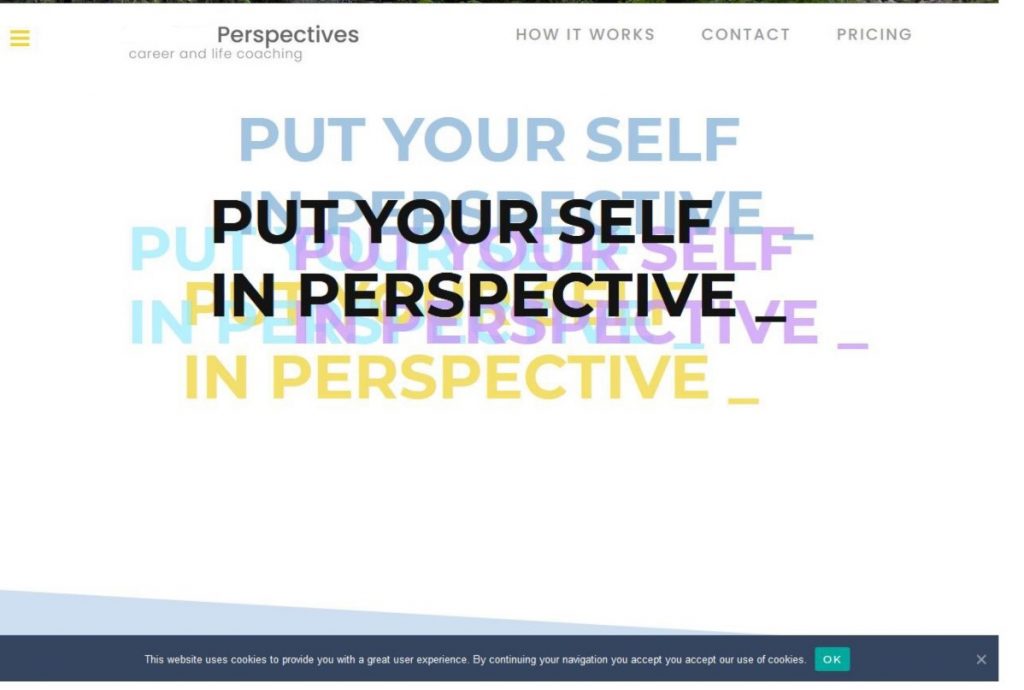
Now look at this homepage
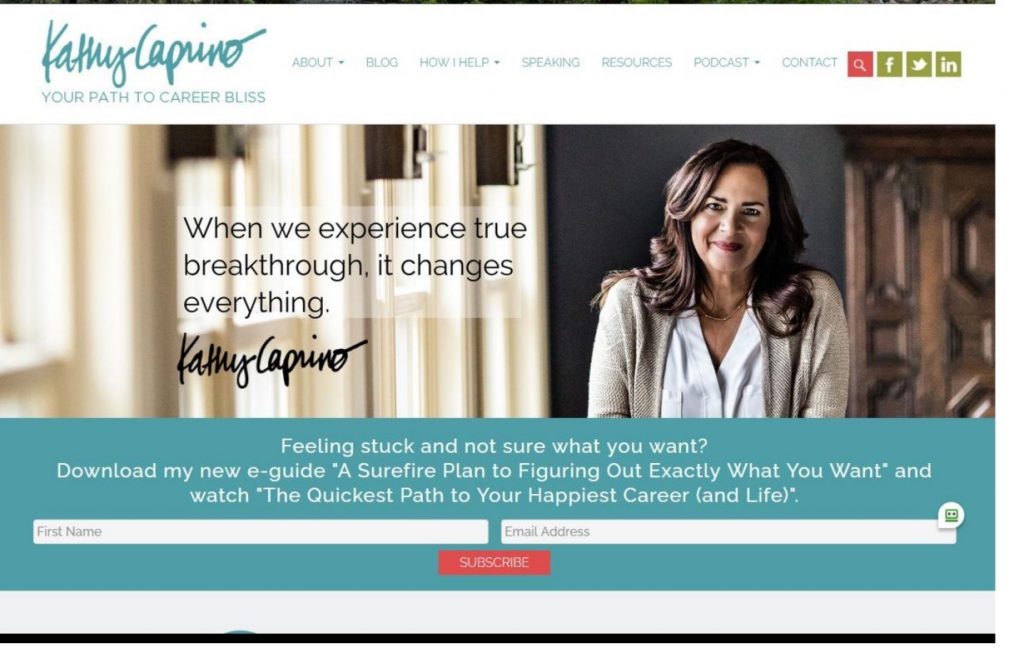
“Your path to career bliss” Short and simple, but it captures exactly what Kathy does and who she helps.
There are plenty of clients to go around. You don’t need to worry about trying to attract everyone just so you have enough clients. If you choose the right niche, you will have more than enough clients to work with.
Avoiding the Wrong Niche
That does imply you can choose the wrong niche. It’s important to balance both the uniqueness you bring to the table, with a realistic expectation of who will pay for your services.
I have 25 years of homeschooling experience, on top of degrees in counseling and coaching. My expertise is in cognitive motivation (a fancy term for what makes people tick, essentially) It seems like a perfect fit for me would be to coach homeschool moms who are struggling to get their kids motivated to do their school work.
However, I also know homeschool moms in general do not spend money on improving themselves and their abilities as teachers. They are almost exclusively stay at home moms living on one income. Any extra funds go to buy new curriculum and books. They are not prone to spending money on what they perceive is for themselves instead of for the children. For that reason it is a very difficult niche to make money with one on one coaching.
Could you start a private, paid members only, Facebook group and do group coaching? Absolutely. It’s not to say coaching this niche is impossible, it just takes a willingness to find the right options. As I said earlier, maintaining a group is not a good fit for me.
What I did instead was to choose a niche of small business owners who want to learn how to motivate their staff to greater productivity and improve morale. Same concepts, same basic people skills, different audience and one with the financial means to hire a coach one on one.
One of the best ways to determine if you’ve chosen a profitable niche is to search for other coaches who reach the same market. If no one is doing it, it’s probably not because you’re the first one to have that idea! It’s more likely that other have tried before you and found it wasn’t profitable.
What’s your life coaching niche?
Look back over your past experiences and your strengths that you wrote on your Roadmap. Who might you have a natural connection with or empathy for? Brainstorm a list and make their description as detailed as possible in section 4. What is the average age, gender, income, education and background? What do they follow on social media? What are their political leanings? What do they talk about with their friends? What keeps them up at night?
Come up with an imaginary person who exemplifies your ideal audience. What is their biggest pain point and how can you help?
Describe them in as much detail as possible. Average age, marital status, gender, income, education, lifestyle, hobbies, shows they watch, websites they visit, social media accounts they follow. What are their greatest fears and concerns? What is their dream vacation, their favorite book? You may not have the exact answers, but for now, make your best guess based on what you do know.
Refine your description with as much detail as possible. For example, instead of coaching “woman who want to be better parents” Niche down to “professional women between 35 and 50 with 4 or more children who live in urban areas” Can you see how the more tightly defined group will have some very specific needs you could identify and meet?
Go to section 4 of your Roadmap and write up your description of your ideal niche.
Remember the websites above? Kathy Caprino’s ideal client is a working professional women who feels stuck and wants a new path to career bliss. She’s not working with stay at home moms. She’s not trying to attract women who want to leave their career and start a business. She helps professional women find a new path to a career that fits them.
What experiences, traumas, hurdles and challenges have you overcome? What mindset, wisdom, new attitudes and skill sets have you acquired as you overcame that situation? Who else might benefit from what you know?
They don’t have to be in your exact situation. What I know about how people grow and motivating them to reach their potential doesn’t apply just to homeschooled kids. I can apply that wisdom to help managers motivate their staff (or to help you find your ideal life coaching career!)
Perhaps you’ve learned how to release anger and bitterness. Maybe you know how to walk in your own truth after years of narcissistic abuse. Maybe you’ve overcome an eating disorder and have some powerful tools for building self-worth and discipline.
Who else needs what you know?
The number of potential life coaching niches is surprising. There are over 50 possibilities here. There are a lot of possibilities and you will refine this over time. There is no pressure to get The. Right. Answer. Just write down some potential ideas in your Roadmap.
Credibility
As you start to define your niche, you can start thinking about what kind of credibility and authority you will need in order to be successful with that group of people. Different niches will respond differently to your level of expertise or lack thereof.
You will need to know your target market well so you will know what kind of life coach they will respond to best.
Our example above, Kathy Caprino, works with professionals at the corporate level. She has 18 years of experience working in a large corporation. When she left that work she went back to school and earned a master’s degree in therapy, trained as a coach, built a speaking career and wrote a book or two. She has earned credibility with her ideal client base.
If you want to serve professionals, getting advanced certification is going to be imperative in order to have credibility in that market. You’ll want to look at some of the more intensive, best executive coaching training programs
What will it take for you to be an authority in your niche? Write your answer in the last question of section 4 on your Roadmap
Not everyone needs the level of education Kathy has in order to be credible in their niche. What you will need to do is establish yourself as an expert in ways that are meaningful to your audience.
Ideas for building credibility as a life coach
What is your Life Coach Brand ?
As we learned earlier, your brand is both the how you serve the people you serve and who you serve. What emotions, tone, and impressions do you want to convey? Do you empower, motivate, nurture or inform?
Are you serious and professional, dedicated self empowerment advocate, or light- hearted and playful? What do you want your ideal client to think, feel and do after contact with your business brand?
How do you want them to feel?
| Empowered | Motivated | Energized |
| Equipped | Serene | Confident |
| Safe | Professional | Healthy |
Those are just a few ideas. You’ll go into far more depth when you are ready to launch your business. Again, our purpose is to help you identify what your business might look like, so you’ll be able to make informed decisions about your next steps to getting there.
Page 12 on “Brand” in the Roadmap has some questions for you to consider as you plan your brand identity.
Knowing who you want to coach and how you want to serve them is essential to helping you decide what, if any, coaching program is best for you!
Here’s a secret – focus your brand efforts on the positive results your niche wants to achieve, not on the negatives. Rather than being an “Anxiety coach” you could brand yourself as “Unstoppable Courage Coach”
Add a brief description of who you serve and a brief description of your brand at the bottom of page 12 in the Roadmap
Look at how far you have come!
You’ve identified your strengths. You’ve thought about a possible business model. You know what you value and want to live by those values. You have a vision for what your ideal life as a life coach can look like. You’ve summarized your niche and your brand.
Lot’s of potential and an exciting future ahead! What more could you possibly need to consider?

Section 5 The Cost of Becoming a Life Coach
Our Website may contain links to affiliate websites. When and if you click on an affiliate link and make a purchase through that link, we will receive commission for any purchases made by you on the affiliate website using such links. Purchases you make through our affiliate links are at no additional cost to you. This means you will pay the same price for the purchase as everyone else.
Can you be a long term, successful, professional life coach for free?
No. However, you can get started for minimal cost.
Anything worth obtaining always comes with a cost. You may have to start working with whoever you can find to coach, charge them a minimal amount, and put that money away in savings so you can pay for a course.
You may need to start by taking some inexpensive, beginner courses and pay as you go, gradually.
Knowing your needs, means you can set realistic plans and expectations. Think about what is best for you and your family. Can you quit your job and pay for an intensive 8 day coaching seminar? Or will it work best to take one online class at a time that only meets for two hours each week?
Your budget and your needs, as well as your niche or specialty will determine which kind of coaching program you sign up for.
If you want to get started as quickly and as inexpensively as possible but need some sort of structure to follow as you work with clients, get the book “Becoming a Professional Life Coach” by Williams and Menendez. It’s the core text book to many introductory Life Coaching programs and regarded as the “bible” of life coaching although it does not promote any particular religion or philosophy. It will give you a solid foundation of what to expect as a coach, how to coach, a bit of psychology about how people change plus forms and assessments to use with clients.
Another option for understanding the life coach process without investing in a pricey long-term program is to check out these videos on Udemy Whatever niche you are considering you can find a video with some introductory insights. There is also a good high level overview of how to be a life coach here
A 13 hour DIY course costing $149.95 is not sufficient to give you the kind of oversight, practice, mentoring and long term support needed to build a sustainable and profitable business. But it is a place to get started, especially if you want to get paying clients and build some income that will allow you to continue to take more classes.
Another “cost” to starting your own life coaching business will be your time and energy. You will have to carve out time from your already busy schedule. In section 8 we’ll talk about how to identify and overcome those kinds of obstacles.
There is space in section 5 of the Roadmap to write down any thoughts about what kind of courses or books you want to consider and to brainstorm ideas of other “costs” that might come up -Do you need to find time, someone to help around the house while you study or work with clients, replace employer provided health insurance once you transition in to full time coaching?
If you’ve determined that some sort of certification is right for you, the next two sections will give you invaluable information about how to choose the right program for you.
If you don’t want to get certified skip right to Section 8 Overcoming Your Obstacles to Becoming a Succesful Life Coach

Section 6 Life Coach Certification
International Coaching Federation or ICF
Do you need formal certification to start life coaching? No
Should you get it? Yes.
We’ll cover more about why it is so vital in a moment but first let’s figure out what kinds of certifications there are.
Briefly – there are two kinds of certification you can get. One is from the individual school you attend. Anyone can set up a curriculum, charge a fee and issue a certification. There are no federal standards or requirements they have to meet. All they need is a website and an advertising campaign to draw people in. In section 7 we’ll go over ways to identify the best life coaching institutes as well as several evaluation questions to help you figure out exactly which life coach training program is right for your specific needs and goals.
The second certification is from the International Coaching Federation. They are not a training school. The ICF is an association of coaches and life coach training institutes who banded together to bring professional standards to the field of life coaching. It’s more of a private oversight agency. The ICF sets their own standards (again there is no federal oversight or licensing involved here) and then the schools can submit their curriculum to the ICF for accreditation. If the life coaching school earns the approval of the ICF it means their training program fulfills the standards of the ICF.
Once you finish the school’s training program and earn their certification, you can then go on and apply to the ICF to get their credentials as well.
What is the ICF
It was founded in 1995 by Thomas Leonard, a well-respected pioneer in the life coaching field, as a way to bring standardization and professionalism to the coaching field.
The ICF decided for themselves that they were going to be one of the primary sources for coach credentialing. This does not mean they are sanctioned by any other authority.
The ICF has been a major force for bringing Life Coaching into public awareness as a valuable resource for societal, personal and organizational change. They have developed and refined a set of core competencies and ethical standards on par with the standards of any profession.
Because of their high profile in the industry, it is possible that ICF aligned standards will become a major part of any future government licensing requirements. Completing a non-ICF aligned program may leave you out of business when licensing does become a requirement to practice.
The ICF standards are not licensing requirements, there is no state of federal licensing for life coaches required in order to practice at this time. Although it is possible that could change in the future.
Because there is no federal requirements to be a life coach, you don’t need any kind of license, however there are some legal requirements you need to be aware of. You can find a brief introduction to life coaching legal forms here
Is it certain the federal or state governments will require licenses ? Nope. Nothing is ever certain. However, professional licensing by government agencies comes with license, continuing ed, and training fees and the government gets a share. It’s an opportunity to raise money for the government so it’s doubtful this untapped revenue will be ignored forever.
Could there be some sort of grandfather provision for people already in business, or a one time test to take? Possibly.
Could your business be closed until you can provide proof of licensing? Possibly.
Nothing is certain but it is a consideration to be aware of and take into account as you decide where to invest your time and money.
Benefits of ICF Certification
ICF accreditation provides four main benefits –
1 – Credibility with potential clients
2 – Greater confidence in your level of expertise and ability to competently help others
3 – If the government does step in to require life coaches be licensed, training that matches the ICF standards of professional core competencies and ethics will very likely be a big part of the requirements simply because the ICF is a major influence in the life coaching field.
4 – Collaboration and networking with like-minded colleagues
ACC, PCC, MCC and alphabet soup
There are several levels of ICF credentials. Schools that are ICF aligned will prepare you with the course hours, learning competencies and practice hours you need so you can apply for the ICF credentials. You will end up with two certifications. One from the individual school, and one from the ICF.
The first level of ICF certification is the ACC, Associate Certified Coach. From there, with more training and hours of experience you can go on to PCC (Professional Certified Coach.) For a select minority of top coaches, here is the MCC or Master Certified Coach. MCC coaches are rare because it requires over 200 hours of training and 2500 hours of coaching experience.
One of my favorites life coach training institutes, the Certified Life Coach Institute offers two 3 day intensive programs, level 1 and level 2. At the end of the level 1, 32 hour course, you are awarded a C.L.C (Certified Life Coach) designation by the Institute. At the end of level 2 you have enough course of study hours to qualify for ICF’s first level of certification, the Associate Certified Coach.
Note, you will also need 100 hours of in-person coaching experience on top of classroom hours to qualify for the ICF ACC certification.
Certified Professional Life Coach without ICF credentials
For our purposes today however, that doesn’t mean those are the only standards which insure professional level training. For example, the Tony Robbins program, called Robbins/Madanes Training or RMT offers the Board Certified Coach credentials designed by the Center for Credentialing and Education.
There is also the Certified Coaches Alliance, another oversight and credentialing agency, among others. If you find a life coach training program that seems like an ideal fit for your needs and they are not accredited by the ICF don’t despair! Just because ICF is one of the bigger and most well-known authorities in coaching credentials does not mean they are the only ones!
Some programs train coaches to walk with clients through deeper emotional, spiritual, physical and mental wellness. These go beyond the ICF guidelines because they blur the line between counselor and coach. IFC is dedicated to keeping that line very clear in part because it benefits the coaching community as a whole to be completely and ethically differentiated from counseling.
The goal of the ICF is to promote coaching as an effective, professional, viable model for creating change for people who do not need the services of a therapist. Keeping coaching and counseling clearly separate is imperative to their mandate.
This is partially a move to develop the field of coaching as viable in its own right, separate from counseling, in the minds of potential clients. That’s a good position for the coaching field as a whole, but what if you want to practice a more integrated model of holistic wellness?
There are programs that are highly credible and well known which do just that, like the Integrative Wellness Academy, or IWA.
IWA awards a Master Practitioner in Integrated Life Coaching that is not accountable to any national or global accreditation association. They teach coaching while integrating diverse healing modalities. IWA includes some aspects of therapeutic treatment which blurs the line between coach and therapist in a way that does not fit with ICF guidelines.
That does not make them a less credible or valuable program. In fact it may be a perfect fit for anyone who wants to go deeper with clients, to heal core issues beneath the surface that drive unwanted behaviors.
It just means you won’t have the most commonly recognized credentials. Honestly, unless your clientele is high end professionals in business, sports or entertainment, they aren’t terribly likely to know the difference between various types of credentials and won’t ask about yours. Even some high paying clients don’t ask!
Use section 5/6 of the Roadmap to jot down your thoughts about getting certified at this time. Which level of credentials, if any, looks best to help meet your goals? Will it help you grow in confidence and gain some needed business skills?
Still not sure? Check out Life Coach Certification, scam or salvation?

Section 7 Best Life Coach Training
Finding a Life Coaching Training Program that is right for your goals.
Of course one of the best ways to insure you are looking at a quality program is to look for ICF accreditation as we already discussed.
Do you need a college degree?
No.
Coaching programs from a university are usually a specialization option under their psychology department and part of a bachelors or masters in psychology, counseling or other therapies. Unless you want to offer both licensed counseling and coaching, a college degree is not necessary.
Will a college degree provide greater credibility? Absolutely. If you have the time, money and desire, by all means go for it.
Let’s figure out what’s ideal for you. Pull out your Roadmap to section 7. Looking over your past answers will give you a concrete idea of what to look for in a life coach school. You will know what specific niche of coaching you want to learn about and what strengths and values you want to bring into your coaching. Having this information will help you know if a program is a good fit or not.
Look at your strengths and your target market.
Review your values and ideal lifestyle.
Revisit your potential niche ideas.
Based on the kind of life and business you want to design, what type of coaching do you want to pursue?
If you’ve identified your dream life coach business, you can narrow down your options to only the programs that cover the specialty you want.
By clarifying your values up front you can focus on programs that support similar values.
Here’s a list of several of the top life coaching schools for you to consider
Evaluating a Life Coach Training School
Is there a diverse facility or just one “guru” expert? This could possibly be a red flag that there is no accountability over that so-called expert to hold them to any standard of ethics or quality. (Notice I’m not talking about programs offered by high profile people like Tony Robbins, Martha Beck, Brian Tracy, Marianne Williamson, Brene Brown… They have years of authority and credibility)
Does studying under one highly credible, respected guru sound appealing? How might you find them and connect with them to get started?
Do they allow you, to be you, within the framework of the coaching model or is it so rigid that every student practically follows an identical script? Effective coaching is as much art which employs your personal wisdom, as well as a science using specific models. A great training program will help you integrate both.
Does it prepare you to actually work with clients through peer and volunteer coaching client practicums?
Does it provide continuing education opportunities? If you elect to get IFC certified, and I strongly recommend you do, you need a program approved by the ICF and the ability to earn 40 Continuing Education Credits every 3 years.
Does it prepare you to run a business, informing you about the legal issues, welcome packets, ethics, legal contracts and agreements, finding referrals, and more? If not, do you have access to a source for business guidance?
Do they have realistic expectations and promises about the realities of a life coach career? Promising a 6 or 7 figure coaching business in the first year is NOT a realistic promise and should be a huge red flag. Most of those “experts” are making their 6 figure income by selling a course about how to become a coach. They aren’t actually making the money as a coach. Remember, because there are no licensing standards, anyone can not only call themselves a coach, they can set up their own life coaching school and offer certifications.
Will the classes fit your budget and schedule?
Do you have to take 3 weeks off from work and fly across the country?
What is the time commitment?
How will you fit it into your schedule?
Once you find some potential life coaching programs that might fit your needs, check the reviews online (Not just the reviews they put on their website!)
Pull out your roadmap to the page in section 7 on Questions for Evaluating Life Coaching Schools. I’ve made it a separate page so you can print as many copies of just that page as you need for each program you want to evaluate.
Things to avoid:
Are high ticket programs best? Not by any means. Some are full out scams.
Avoid DIY courses that lack real oversight, interaction with teachers, mentoring or monitored practice.
That 8 hour DIY online video course for “only” $2295 that promises you’ll walk away with their Professional Certified Coach designation? No. Nope. Please don’t. Anyone can print up a bunch of certificates, build a slick website, put together some videos using information they learned by reading other websites, and do advertising on Facebook.
My first exposure to life coach training was a fairly pricey, 10 DVD set with workbooks and multiple choice tests to submit at the end of each DVD. No live teacher interaction or practical experience. No training whatsoever in how to walk through an actual coaching session.
I simply viewed the DVD, filled out a test, got a passing grade and when they were all submitted, I got a certificate saying I was a Certified Professional Life Coach.
There was no follow up support, no ongoing training, no help actually starting a coaching business. It was all theory. Beyond that you were on your own.
If I mentioned the school and listed the teachers, you would likely recognize some of the names. This was not “Mary Beth’s school of life coaching” It is a reputable school, associated with a major university.
Because Life coaching is not regulated, they can legally sell you the course, hand you a printed certificate and say you are a Professional Certified Coach. What you actually would be is $2295 poorer.
I’m sure that course could be of value to anyone working in an existing business who wants to supplement their current job skills with some coaching ability. In fact, it’s probably perfect for that. For me, wanting to run my own business, it was a waste of time and money.
That’s why I’m helping you dig deeply into what is best for you and how to evaluate if the path you follow is going to get you where you want to be.
The expectation that an 8 hour DIY video will adequately prepare you to run a coaching business will not hold up to reality. Building your own business is hard work and it takes considerable knowledge. One of the basic qualities of a successful business-person is the ability to think like an entrepreneur instead of like an employee. I know of only a small handful of life coach training institutes that cover business mindset as part of their training.
You have come a long way! You’ve got a pretty clear idea of where you are going. Any journey runs up against obstacles. Identifying and planning for them ahead of time takes away their power to stop you. The next section will help you identify potential obstacles and equip you with the tools to climb over them.

Section 8 The Secret to Overcoming Your Obstacles to Becoming a Life Coach
Confront your fears, identify obstacles, and make a plan to conquer them
Now you have more clarity about where you want to go, lets get think about some of the obstacles that might pop up and make a plan to banish them. We are going to dig into some considerations no one else talks about.
This may sound harsh (and a bit boring, honestly). It’s not meant to discourage you. These are the realities that, once you work through them, will equip you to deal with the obstacles life will throw at you to try and block your path.
If you didn’t read the article on Becoming a Life Coach; Facing Fears now would be the perfect time to go back and do the exercises there. Bring those fears out in the open and confront them with the light of truth – the truth about the resources, potential, and support you have to lean on as you walk this journey.
Anticipating future obstacles isn’t an easy exercise. Some people are better about seeing the big picture and identifying potential obstacles than others. DON’T TRY TO ANSWER ALL THE QUESTIONS! Do the best you can to honestly evaluate each question. Look for the ones that jump out at you as the mostly likely to impact your journey and focus on answering those.
Start by thinking about what you know about your past behaviors. Look over the questions below, or go to section 8 of the Roadmap and ask your intuition which 2 or 3 are the biggest or most likely issues to come up. Spend about 10 minutes doing a brain dump of all the random solutions you can come up with for just those top obstacles.
Is your partner, spouse or other significant people in your life on board with your dream? If not, why not? Is their support or lack of it, going to make or break this for you? Do they have reliable insights about what is best for you in this season of your life?
Do you tend to procrastinate?
Do you get easily distracted and excited about a new idea before a current project is finished?
Are you a perfectionist who struggles to move forward until everything is perfectly organized and all mistakes are avoided?
Do you find you need to work with other people in order to stay motivated?
Do you need more structure and plans in place?
Are you prone to impulse purchases or splurging on last minute vacations? Do you need to be more intentional about your budget so you can avoid impulse spending that will eat into the money needed to complete your training?
Do you need a mentor or accountability partner?
How are your time management skills? Is this an opportunity to improve?
Do you need to clean up some personal situations before you can get started?
Is your job stressful and requiring more of your time right now?
Maybe your kids are still babies and need more of your time. Coaching might have to wait a couple of years. What can you do now to lay the groundwork for later? Start reading the books? Go through some self-evaluation assessments yourself to become familiar with them? Hire your own coach and learn how the process works?
Are you caring for elderly parents who require all of your free time? Can someone else help? Do you need to start your life coaching on a very very limited basis while you prioritize caring for family? That is perfectly okay if that is what is right for you, at this time. Baby steps in the direction of your future is far more effective than no steps at all.
Are you dealing with health issues that need to stabilize?
What else is going on in your life right now that cannot be neglected?
You are considering starting a business. That takes time and mental as well as physical energy.
What kind of free time will you need for learning, networking, practicing skills, building up an online presence, getting a website, graphics, social media posts done?
Where will you make time in your schedule?
What needs to be removed, delegated or changed?
Who can help?
Why do you want to start a Life Coaching Business at this time? Is running coaching business part of your dream life? or is it an attempt to distract yourself from old issues you don’t want to look at?
Are you in a situation of being really strapped for cash and this is just an idea for a way to make money from home?
Being honest about your motivations for going into coaching is a major step toward the important coaching characteristic of self-awareness.
Changing our lives and building new routines is hard. What resources do you have?
(supportive people, start up capital, hiring a coach of your own, household help, a place from which to work, business mentor?)
If you would like a free business mentor, I recommend you check out SCORE.org. It is a national organization in the US with chapters all over the country. They are retired business professionals who volunteer their time to help people start businesses. Another option is to check with your local chamber of commerce and ask them what resources are available for start up businesses.
List any new routines and habits that need to be in place.
- Will you need to be more efficient about your work schedule so you can make time for clients?
- Will you need to give up some routine or start a new one that will enable you to streamline household duties?
- The average person is spending 5+ hours a day on their phone. How much of that time could you reclaim to build your dream business?
- How will you do that?
- What new habits or tools can you put in place?
Where can you cut expenses so you can afford certification training? Cheaper phone plan? Fewer dinners out? Give up vacation for a year or two? Cut the cable cord? Less expensive or fewer new clothes purchases?
If you need help and support starting new budget habits I highly recommend The Organized Money with Alaina Fingal She’s practical, fun and completely understands how hard it is to jump right into a super strict budget. She has a ton of free videos and other resources.
Where and when can you start to get in the habit of meeting new people to expand your network of real live, in-person acquaintances?
Do you have a daily schedule every day? Running a profitable business means taking responsibility for the details – showing up on time for client appointments, paying your bills, tracking income and expenses, filing annual or quarterly reports with the state, scheduling consistent content creation for your website or social media while still keeping track of your personal life. It doesn’t have to be overwhelming and it doesn’t have to happen overnight, but you will want to work toward developing a weekly and daily schedule either using a paper or digital planner.
How much money do you need to make in your business? The average income for a Life Coach in the US is less than $40,000 a year. People with broad niches like basic Life Coaching, or “transformational” coaching make even less. If that’s not enough income, what can you do to earn more? Possible streams of income could be:
Doing group coaching
Creating your own digital products
Holding workshops
Online membership program
Taking on higher paying corporate clients
What other obstacles might come up? Annual events you’ve committed to work on, a bill that might come up only once or twice a year but needs to be paid before you can commit to classes or to building a website? What else can you think of? How will you deal with it?
Starting a new business plus learning the skills of a coach can be mentally and physically draining. List three ways you can intentionally invest in your self-care.
There is room to answer the questions and brainstorm solutions to just your top 2 or 3 potential obstacles in section 8 of the Roadmap.
Whew! That is a LOT. If you’ve worked through all 8 sections so far, you are to be congratulated.
Your odds of making a living as the kind of Life Coach you want to be just skyrocketed! You are no longer in the 90% who get started but quit within the first year. You have all the pieces of the puzzle that you need to put together so you will have a solid, workable path to walk on into your future.
It means you are committed to yourself and your dreams. Whoo Hoo!
At this point I would encourage you to take a break. Sleep on this. Let your brain sift and sort it all out. Drink plenty of water, go for a walk or get other exercise. Let your brain relax. Come back in a couple of hours or even tomorrow and you’ll find you have new insights and fresh enthusiasm to tackle this last hurdle:

Section 9. Putting Together Your Roadmap to Success
Designing Your Life Coaching Business Plan
Hopefully you’ve been filling out the roadmap worksheet so you have all of the work you’ve done neatly summarized on just a few pages.
If you haven’t thought through some possible solutions for all the obstacles we talked about in the last section, please take the time to do that. Just leaving things up to chance and hoping they’ll work out when you get to them means you increase your chances of being derailed by circumstances.
The last exercise before we pull this all together into a step by step roadmap is a quick project planning.
Once you know your vision for your dream business and have identified what ( if any ) certification and schooling you want, you need to know your next step. Use a blank sheet of paper or download the full Roadmap PDF to do a quick brainstorming in section 9 of all the things that have to come together for your business to get off the ground. Don’t filter or try to prioritize them in any particular order, just write everything you think of. We’ll sort it out later.
Some examples could be – start a savings account to pay for a class, learn how to network and find clients, learn about the stages of adult development and how people change, find someone to watch the kids for 2 hours a week while you work or study, talk to the boss about starting a life coaching program at work, start contacting potential schools, talk to a friend about volunteering as a client.
Did you make your list? No? Go write down all the stuff wandering around in your head. I’ll wait right here……
All set? Okay! Let’s pull it all together.
You might have a really big list that looks overwhelming. Don’t worry! Having it all laid out may feel overwhelming but it also means you have realistic grasp of the commitment and work involved. You can be prepared rather than getting overwhelmed later and quit 6 months into the process.
For now, use a highlighter or a symbol of some sort, mark the 2 or 3 items that really need to be done first. What actionable steps are involved in getting that thing done? How long will it take (one phone call? Days of research? ) Now schedule those actionable tasks in your calendar.
The secret to getting stuff done:
When I say actionable task I mean writing it down in a way you can take action on. Writing “Get training” is vague and un-actionable. “Pick a life coach training school off this list and read about what they offer” is a concrete action. Taking a moment to identify a concrete action will help you avoid procrastination.
When an idea is vague and non-specific your brain feels overwhelmed and confused so it finds other things to do that it does understand. You end up procrastinating on important stuff because you haven’t given your brain a specific task it can turn into an action. Your brain isn’t all that smart, really. It’s great at turning repeated tasks into mindless habits, but when it comes to doing something new, it needs detailed instructions.
Ready?

Here it is. Your one page Guide for turning your dreams into reality
You will find this summary on page 19 in the workbook as well.
My Strengths from section 2 (pg 4 of the workbook)
I’m going to become a life coach because (your purpose from pg 5 of the workbook)
I will know I have succeeded when my life looks like: (values and lifestyle from section 3 and pgs 7&8 of workbook)
My business model (workbook pg 10)
Who I can serve from section 4 (pg 11 in the workbook)
My one sentence brand description (pg 12)
The credentials I’m working toward from section 6 (workbook pg 13)
Potential Life Coach Training schools to check out from section 7 (pg 14)
My biggest potential obstacles and how I will overcome them section 8 (pg 17)
My next actionable steps from section 9 (pg 18)
If you’ve done all this work, you have what it takes to be a successful Life Coach! Congratulations!
Please come to my Facebook page and let me know your goals, dreams, decisions and next steps!
